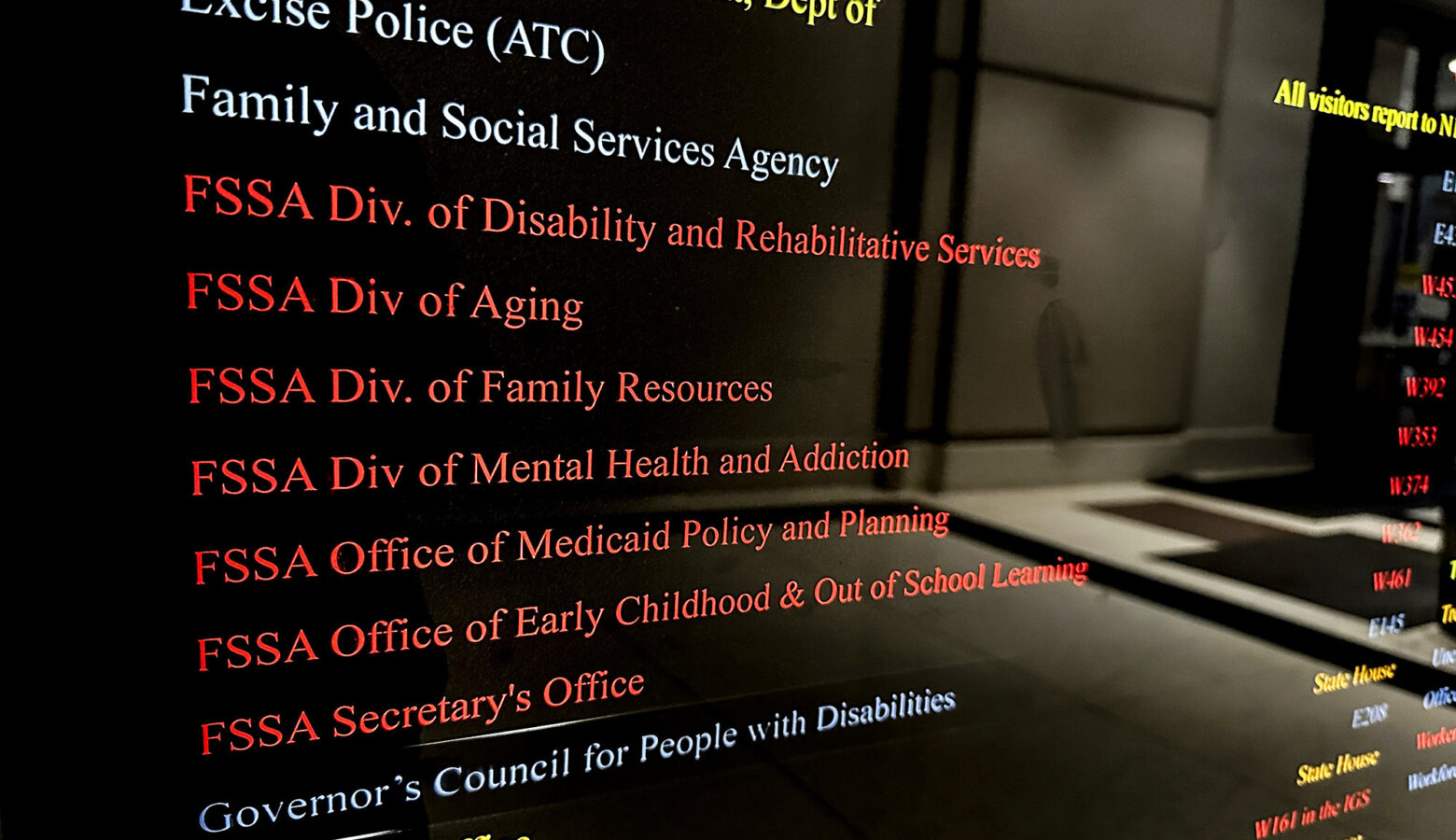Nearly 13,000 Hoosiers wait for Medicaid waiver services. FSSA plans to process about 900 per month

The Family and Social Services Administration provided updates on waitlists for home- and community-based services Monday. It also addressed the concerns from the families of medically complex children about its decisions to change how those services can be delivered.
FSSA implemented a waitlist in April for some home- and community-based services in response to last year’s $1 billion Medicaid forecasting error. Thousands of new slots opened Monday, but Medicaid members may still have to wait months for services.
There are nearly 13,000 people waiting for services through either the Pathways or the Health and Wellness waiver. Medicaid officials said they plan to process about 900 Medicaid members per month — leaving a majority of people waiting for services in the meantime.
Indiana Medicaid Director Cora Steinmetz said the process to move people from the waitlist onto the waiver can take weeks. And the agency only plans to process so many members at a time.
“We are required to conduct face-to-face assessments to determine an individual’s functional care needs, and to determine Medicaid financial eligibility for the program,” Steinmetz said.
READ MORE: FSSA: HIP cost-sharing will remain paused after federal ruling vacated program approval
Join the conversation and sign up for the Indiana Two-Way. Text “Indiana” to 765-275-1120. Your comments and questions in response to our weekly text help us find the answers you need on statewide issues.
The number of slots open for the Pathways waiver exceeds the number of people on the waitlist — with more than 1,500 left over. However, there are 825 people on the waitlist for the Health and Wellness waiver that will not have a slot available. Once a slot is used, it is considered used for the entire year — meaning those who don’t receive a spot this year will likely have to wait until July 2025 or later.
And the agency plans to fill the slots at different rates for each waiver. FSSA said it plans to process 800 slots per month for the Pathways waiver, but only 125 per month for the Health and Wellness waiver. It will take the agency nearly a year to process the people currently on the waitlist for Pathways, and nearly three years for Health and Wellness.
Steinmetz said the agency will continue to provide regular updates on the waitlist as they progress. While members wait for services through the waivers, Steinmetz said they can try other avenues to access support.
“If an individual is in the Pathways program, and on the Pathways waiver waitlist, we encourage them to work directly with their [managed care entity] to help them identify other resources and supports that may be available,” Steinmetz said. “If they’re under the age of 60 and they’re not on the Pathways program, 211 is a great place to start to to understand what community resources might be out there from a support needs standpoint.”
FSSA also implemented changes Monday to an important Medicaid program for medically complex children.
Family caregivers said they’re concerned Indiana will continue to target home- and community-based services if budget concerns persist, but Medicaid officials said they have to balance person-centered care with the program’s sustainability.
Family caregivers are no longer able to provide attendant care. They can either continue the program with someone else as the caregiver or switch to a new home- and community-based services program.
Steinmetz said FSSA is taking steps to avoid errors of “this magnitude” in the future.
“We really cannot speculate what will happen next,” Steinmetz said. “It’s something that we work closely with policymakers, and the legislature on how we’re going to continue to really curb that continued Medicaid cost growth over time.”
Steinmetz said this is a multifaceted issue that is “front of mind” for officials. Family caregivers said they’ve “lost trust” in the agency.
Abigail is our health reporter. Contact them at aruhman@wboi.org.

